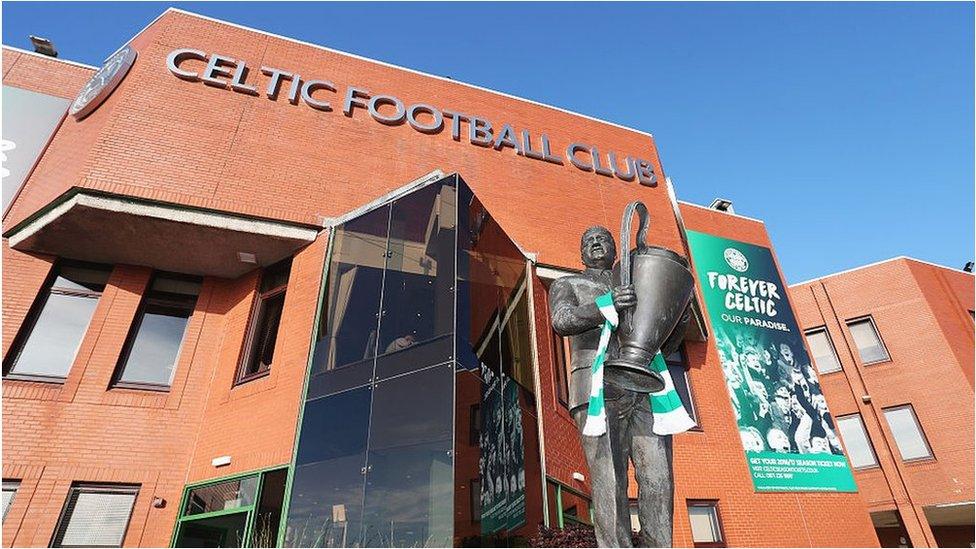Celtic FC seeking to settle Boys Club sex abuse cases
- Published
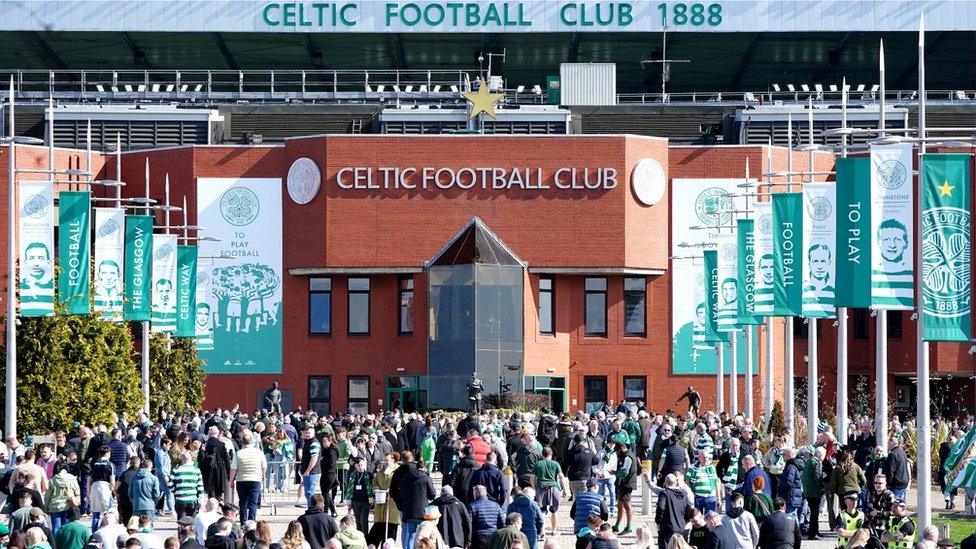
Celtic is seeking to settle legal claims of historical abuse at Celtic Boys Club.
Lawyers acting for more than 20 former players have been told the club intends to enter settlement negotiations.
In recent years several former coaches and officials at the club have been convicted of sexual offences against teenage players spanning decades.
Celtic said it "has always taken allegations regarding abuse at Celtic Boys Club extremely seriously".
A statement released by the club added: "Celtic Football Club and their lawyers have made strenuous efforts to investigate these matters and they continue to do so.
"Celtic's lawyers continue to investigate and discuss these cases with the lawyers acting for those who suffered abuse at Celtic Boys' Club. Those discussions are ongoing.
"It would not be appropriate for Celtic Football Club to comment any further while there are ongoing legal proceedings".
Celtic had previously said it was not responsible because the boys' club was an "entirely separate" organisation.
Earlier this year a judge gave the go-ahead for a US style "class action" group litigation to proceed against Celtic for alleged abuses at Celtic Boys Club.
The boys' club was established as a feeder team to the senior Celtic side in 1966 and the two clubs had close ties, sharing players, officials and premises.
Lawyers acting for the former players argue the boys club and Celtic were "intimately connected" and the senior club was "vicariously liable" for assaults carried out in the youth set up.
The litigation, run by Thompsons Solicitors, relates to historical claims of sexual assault by convicted paedophiles Jim Torbett - the founder of the Boys Club - and Frank Cairney, a former coach.
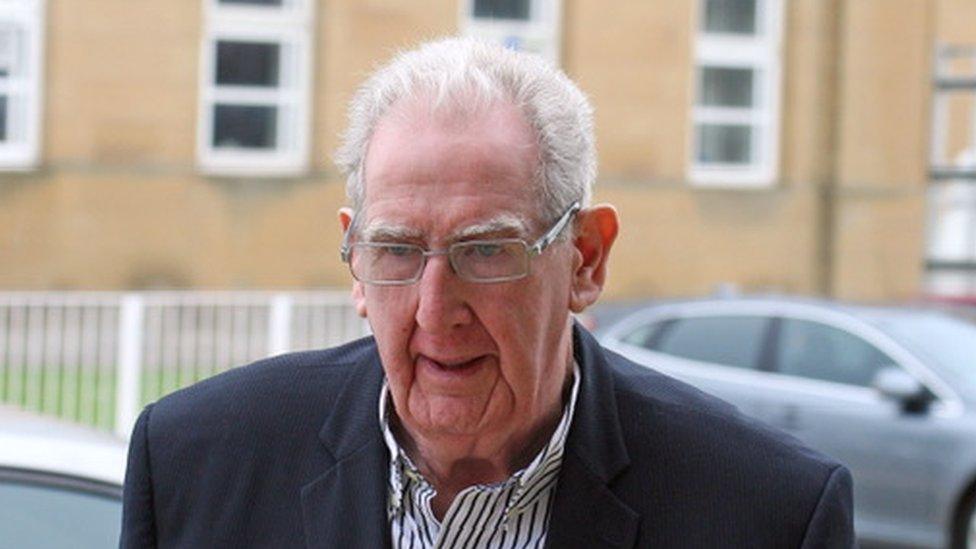
Frank Cairney was jailed after his abuse came to light
A statement from Thompsons said it was "pleased to confirm" that Celtic had indicated its intention to enter settlement negotiations within the group litigation.
It said: "Celtic Plc have not formally admitted liability or made any other formal concessions but their desire to now enter negotiations to explore the possibility of a settlement of this action has been made clear.
"This means that parties will ask the court to adjourn the forthcoming proof [hearing] to allow work to be undertaken to value individual cases."
The firm said it would not be commenting further.
Group proceedings were brought in to Scots law in 2020. They allow groups of two or more people with the same, or similar, claims to raise a single action in the Court of Session.
A hearing for the group litigation had been scheduled for October at the Court of Session before Lord Arthurson.
Now, that hearing will not go ahead, and Celtic and Thompsons will attempt to agree terms and compensation for each claimant out of court.


Jim Torbett had been given permission by renowned Celtic manager Jock Stein to create the boys club in 1966, as an affiliated feeder team to the senior side.
A steady stream of talent flowed from the boys' club into the Celtic first team throughout the 70s and 80s.
But it would later become clear Torbett's motives were not confined to providing the stars of the future for the Parkhead club.
Torbett was convicted in 1998 of abusing three players in the 1970s, and served a short prison sentence.
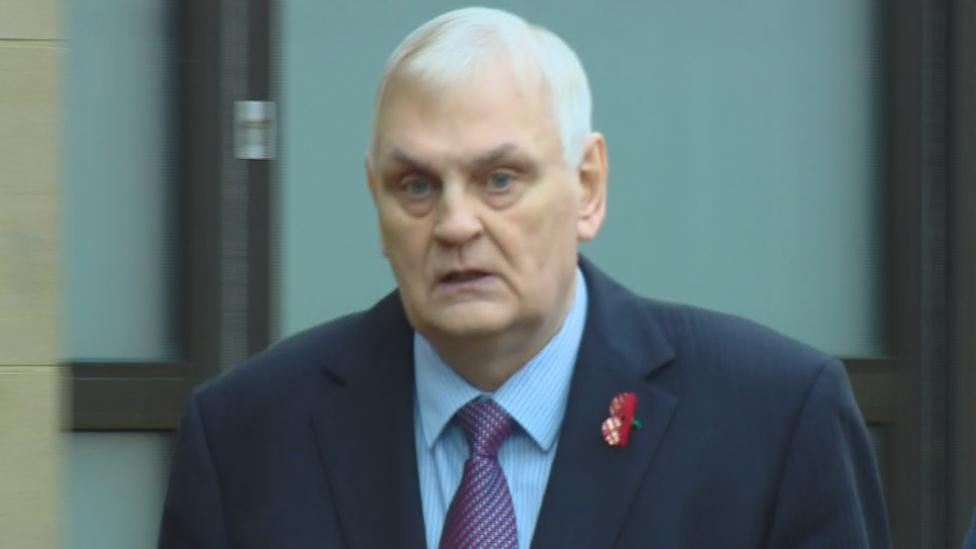
Jim Torbett has maintained he is a "good person"
But in 2016, as claims of decades-long sexual abuse rocked football, BBC Scotland started investigating Celtic Boys Club once more.
Fresh allegations were made in a 2017 BBC Scotland documentary, in which the BBC tracked Torbett down to the US and confronted him.
The documentary sparked a new police inquiry and led to Torbett being convicted in 2018 of abusing three boys in the 1980s.
A series of further convictions soon followed, with Frank Cairney and Jim McCafferty imprisoned after their decades of abuse at the boys' club and other teams came to light.
McCafferty died in prison last year.
As many as six men with coaching or other positions at the Celtic Boys Club have been convicted for sexual offences against children.
After the convictions, survivors of the alleged abuse took their case to the civil courts. They brought their case against the senior Celtic side arguing it bore ultimate responsibility for the abuse they suffered.
The two clubs - they said - were so intertwined as to be the same thing, with players frequently being signed to the senior club on schoolboy contracts, but being farmed out to the boys' club to continue their footballing development.
Several figures, including Jock Stein, held positions at both the boys' club and Celtic.
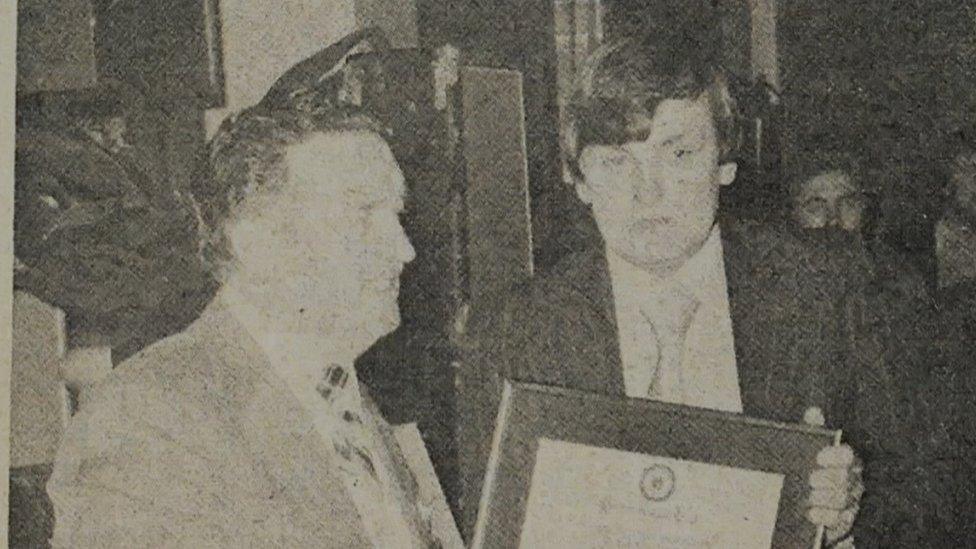
Former Celtic manager Jock Stein (left) gave Torbett (right) permission to establish the Celtic Boys Club in 1966
Many survivors say that there was no distinction between one club and the other, in their minds or in practice.
Since the beginning of the legal action against them, Celtic has expressed sorrow and regret at the abuse which took place but had stated publicly and argued in court that it was not responsible because the two clubs were entirely separate entities.
Now there seems to be a shift in Celtic's position, with the club signalling to lawyers representing survivors that it is prepared to enter into negotiations to settle their cases.
It is understood discussions will take place between the two legal teams over the coming months on the exact terms of any settlements.
Related topics
- Published25 January 2023

- Published25 April 2023

- Published5 October 2021
